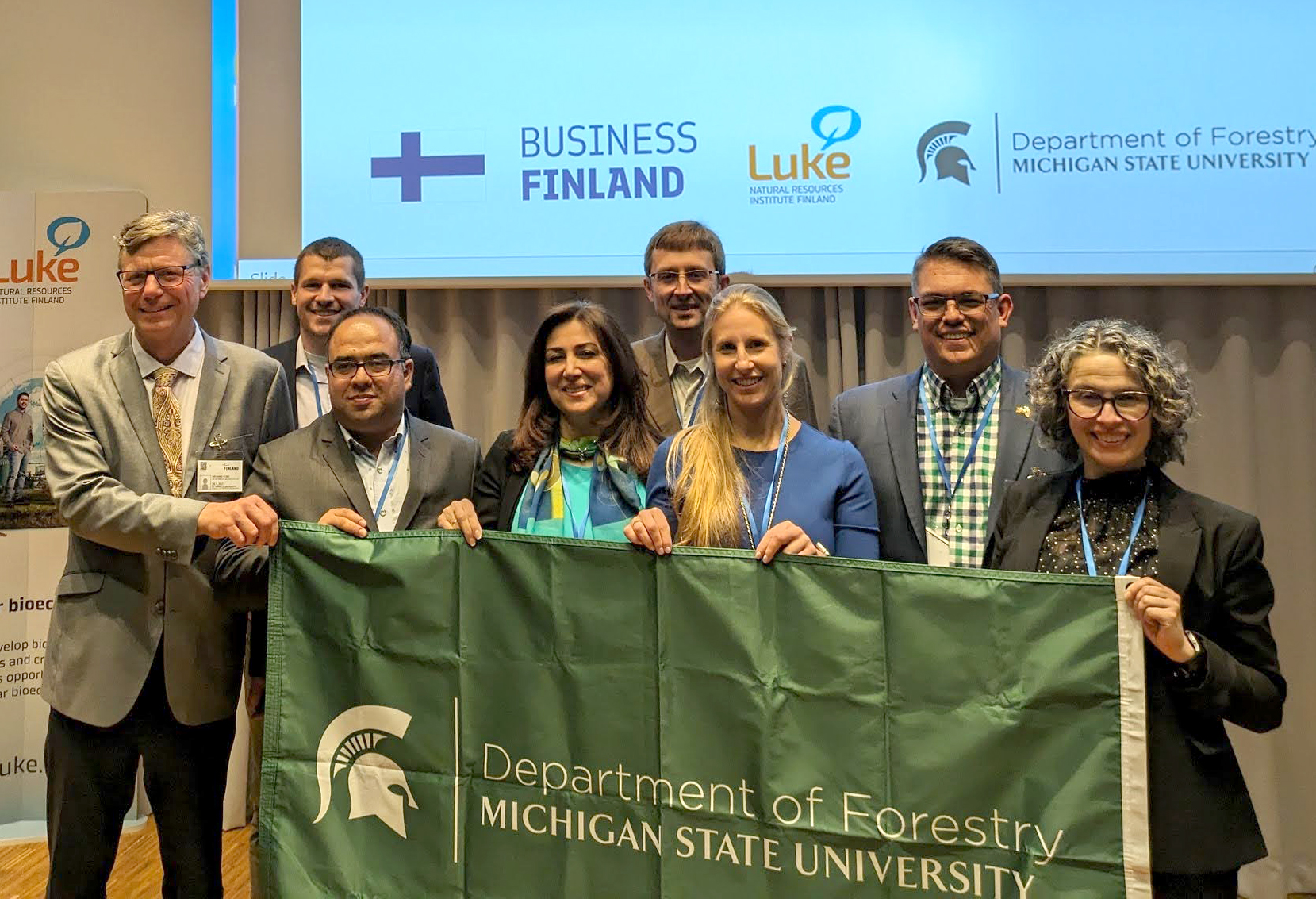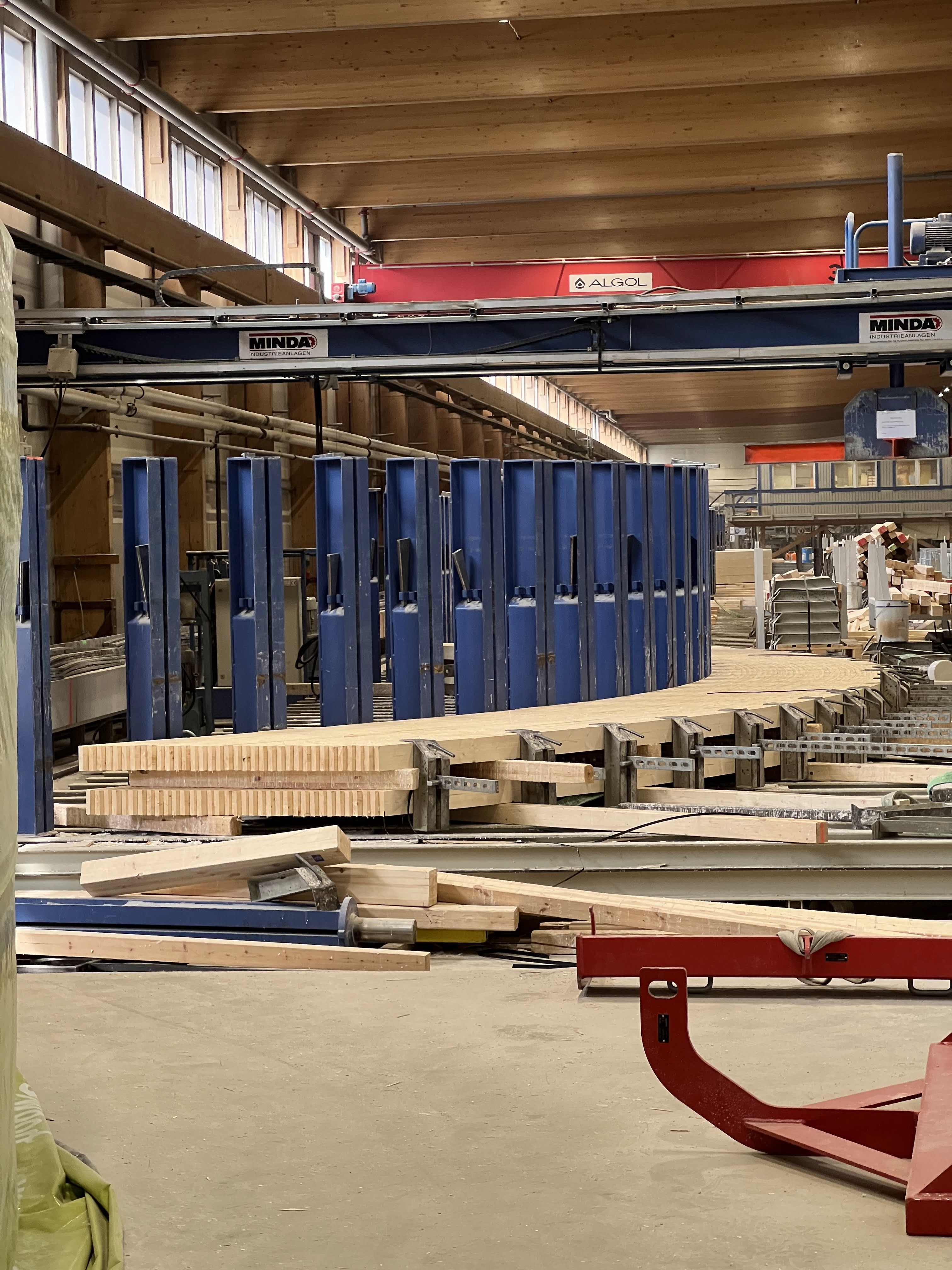MSU Forestry partnership with Finland
Researchers and leaders of government and industry from Finland, Michigan, Maine, Washington and other states convened in Helsinki, Finland, on May 26, for a unique set of workshops focused on biobased forestry products.

Researchers and leaders of government and industry from Finland, Michigan, Maine, Washington and other states convened in Helsinki, Finland, on May 26, for a unique set of workshops focused on biobased products. Attendees from across the United States and Europe are aiming to advance climate change solutions by considering the unique ways in which the full cycle of forest products – from resilient forest management to manufacturing to recycling or re-use at the end of a product’s life – can facilitate carbon storage and the displacement of greenhouse gas emissions.

This expert-facilitated workshop was co-led by MSU’s Department of Forestry and the Natural Resources Institute Finland (Luke), the leading Finnish natural resources research institute.
The mass timber workshop, titled “Mass timber: lifecycle and end of life strategies to optimize climate benefits“, led by Sandra Lupien, provided insight into the future of the circular mass timber economy. “It’s a big challenge to try to plan now for the next life – perhaps 50, 100 years away – of the mass timber materials going into buildings today,” said Lupien. The workshop, attended by about two-dozen industry, academic, and policy representatives, surfaced potentially fruitful ideas for future collaborations and gaining significant interest from industry leaders.

“Dynamic conversations among the diverse workshop participants uncovered key questions – about value chain standardization and replicability, carbon value and policy, and the role of data – that we can collaborate to answer in order to help create a more circular mass timber economy,” said Lupien.
Raju Pokharel, who specializes in Forest Resource Economics, was particularly impressed by the number of startups for forest products companies they were in Finland, versus the United States. “In the U.S., there is more of a disconnect between our forest products industry, forest management, and younger labor force,” said Pokharel. There is also a greater educational focus on forestry at younger ages in Finland, educating students and beginning recruitment of forestry professionals early in school, and instilling the idea that forestry practices are environmentally friendly. “We could use a similar approach to attract younger people into this profession,” said Pokharel.
One distinct difference observed by Jarred Saralecos during this visit, is U.S. limitations on management support for small landowners, whereas Finland seems to have optimized the entire process from harvest scheduling to log marketing, and community support. “While there is a lot of crossover between us, from a harvesting perspective, we are trying to solve very different problems. Currently in the U.S., gaps in stakeholder participation impact efforts to make substantive changes to supply chain sustainability,” said Saralecos.
One thing MSU Researchers hope to bring to the table in future meetings and workshops, is the conversation on energy and fossil fuels, which was absent from this initial workshop collaboration.
The MSU researchers concur that progress will move more swiftly and potentially take research farther if there is a focus on collaborations with people that work together well with a shared vision and like-minded goals, including industry and universities in the northern US and Canada.
Researchers from MSU feel they are currently in a good position to take a leading role in this important collaboration. Discussions have begun regarding a return to Finland in 2024 with site visits in areas of mass timber, biorefinery, and other targeted manufacturing sites. “International collaborations are key to key to gaining new perspectives,” said Richard Kobe. “Michigan, other northern states, and Finland have a lot in common but also differ in our forestry practices and industry – we all can learn and benefit from greater collaboration in advancing forestry and the forest products sector, especially considering how important biobased products could be in climate solutions.”
Other important partners included:
Michigan Department of Natural Resources, Michigan Department of Agriculture and Rural Development, Michigan Economic Development Corporation, Michigan Tech, Business Finland, Natural Resources Institute Finland (Luke), U.S. Embassy Finland, Washington Department of Natural Resources, Maine Department of Natural Resources



 Print
Print Email
Email





